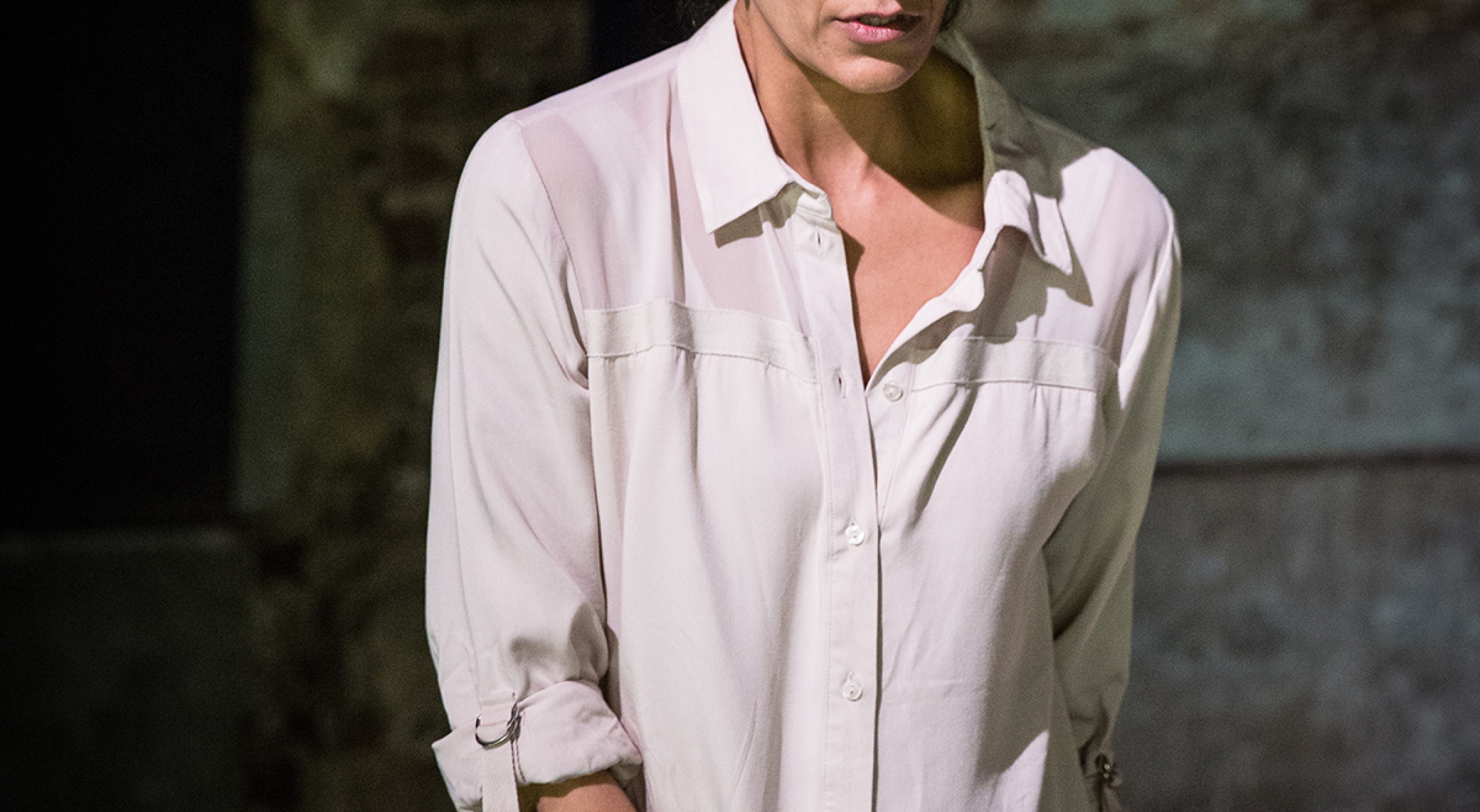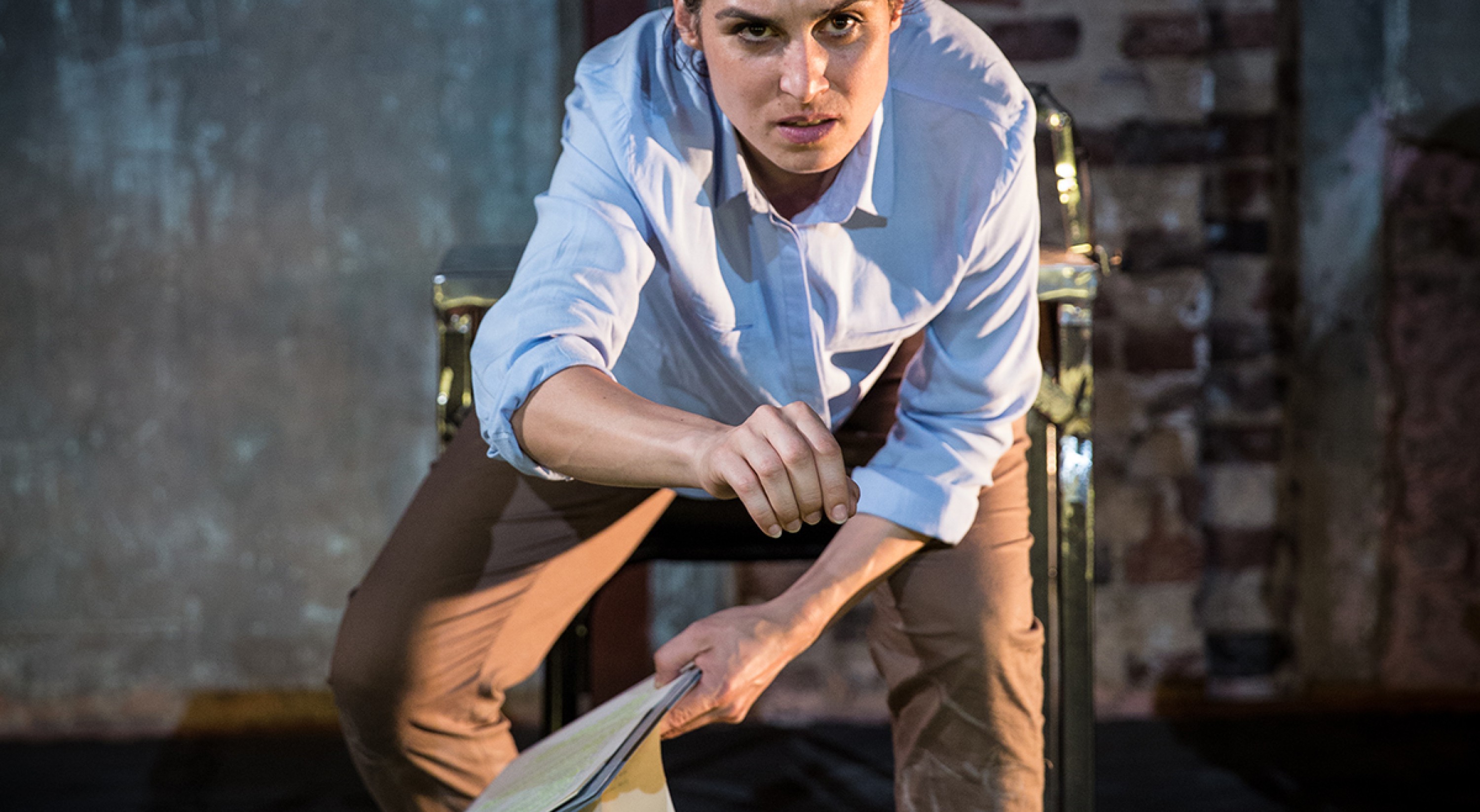Laila Soliman
Zig Zig
Directed by Laila Soliman
With Mona Hala, Reem Hegab, Sherin Hegazy, Zainab Magdy, and Nancy Mounir
Producer, Acting Coach & Lighting Designer, Ruud Gielens
Production management, Ebtihal Shedid
Technical management, Omar Madkour
Historical research, Katharine Halls
Costumes, Lina Aly
English translation, Katharine Halls
Arabic translation, Shadi El Hosseiny
Poster design, Adham Bakry
Website design, Ola Abulshalashel
A production by SHISH – Brussels – Cairo // Co-produced by the Embassy of Switzerland in Egypt Office for International Cooperation (Cairo) ; HAU Hebbel am Ufer (Berlin) ; Kaaitheater (Brussels) ; Forum Freies Theater (Düsseldorf) ; BIT Teatergarasjen (Bergen) ; Zürcher Theater Spektakel (Zürich) ; D-CAF (Cairo) ; Nouveau théâtre de Montreuil, centre dramatique national // In association with Nouveau théâtre de Montreuil, centre dramatique national ; and Festival d’Automne à Paris // In collaboration with Mahatat for Contemporary Art, 15/3 Studios and the Goethe-Institut (Cairo) // With support from l'ONDA //
First performed on 14th Avril 2016 at the Jesuit Cultural Centre (Cairo)
Almost a hundred years ago, a small village in Egypt came under attack from the British army. During the trial, an unprecedented event took place. A group of women took to the witness stand, and explained that they had been raped by the soldiers. Laila Soliman uses their testimonies as the starting point for evoking this historic moment. The piece looks into its underlying current of gender-related violence, and the echoes it has in today’s world.
Egyptian-born, Laila Soliman trained in theatre at the American University in Cairo, and in Amsterdam. Profoundly influenced by the Arab Spring, she now works as a writer and director in her country of origin. In Whims of Freedom, audiences were taken back to the Egyptian revolution in 1919, during which the nation rose up against the colonial yoke of the British empire. This lead to her discovery of the transcriptions of the trial of Nazlat al-Shobak, a village situated close to Gizeh. In Zig Zig, Laila Soliman brings back to life the words of the rape victims, all of whom had made the brave decision to testify despite the risk of stigmatization. Taken up by the nationalist movement at the time, their case promptly became a landmark one before disappearing into oblivion. On stage, five actresses tackle this historical material, and its echoes with the modern concept of rape culture. Allowing the power of the spoken word and dance to speak for themselves, they assess what has changed - or not - over the course of a century. With Zig Zig, a mix of documentary and reinvention through theatre, Laila Soliman, one of independent theatre in Egypt’s most exciting voices, conjures up a piece of work fueled by strong political and social consciousness.

